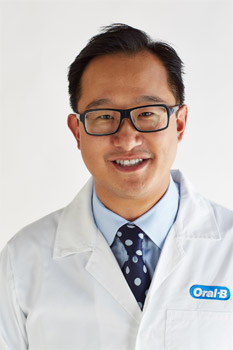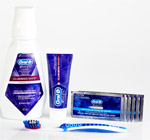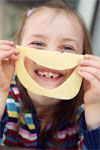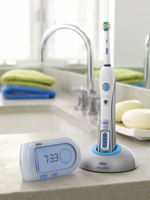Dr Christopher Ho Best and Worst Christmas Food Interview

Dr Christopher Ho Best and Worst Christmas Food Interview
I'm sure you'll agree that most people think about their weight first and foremost when indulging in all the Christmas sweets and drinks. However, the reality is that most of our favourite Christmas foods and drinks contain a lot of sugar, and such a sharp increase in sugar intake over the holidays can be harmful on our teeth.
Interview with Dr Christopher Ho
Question: How does over-indulgence during the holidays affect our teeth?
Dr Christopher Ho: Christmas is a time when we tend to enjoy more sugary treats, and our health (including oral health) is not so much of a focus. Sugary treats easily stick to your teeth, producing acids which can cause tooth decay. To really enjoy the holidays you need to be aware of the foods and drinks you're consuming – too many sticky lollies, hard candy, chocolate and alcohol are some of the worst options for teeth!
Question: What can we do to protect our teeth over Christmas?
Dr Christopher Ho: If you avoid constantly eating during the day this allows the acid levels in your mouth to return to normal as well as offering the saliva a chance to repair tooth enamel. Aim to leave at least 2-3 hours between meals or snacks
If you're drinking alcohol, be sure to allow at least 60 minutes between your last drink and brushing your teeth. Brushing your teeth too soon can damage the softened tooth enamel caused by acidity in drinks consumed during the evening
Consider switching to a power toothbrush like the Oral-B PRO5000 – it has a timer to ensure you brush for the full 2 minutes, and the specially designed brush head removes 100% more plaque compared to a regular manual toothbrush.
Question: Does diet soft drink affect our teeth as much full-sugar soft drink?
Dr Christopher Ho: You'd be forgiven for thinking that sugar-free soft drink is a heathier alternative to your favourite regular soft drink - in reality both are just as bad as each other! Although the absence of sugar gives people peace of mind, the substituted chemicals may leave your teeth exposed to high levels of phosphoric or citric acid instead. Too much and this can lead to permanent damage and loss of enamel making teeth more sensitive and yellower in appearance.
Dr Christopher Ho: Water is your friend! Swooshing water in your mouth in between sugary treats allows the sugar and acid levels in your mouth to stabilise. Also, drinking more water reduces the acid that causes tooth decay and help keeps your mouth clean. Making sure you use a fluoride toothpaste can enhance the hardness of enamel keeping them safe from further damage
Question: What are the best Christmas foods for our teeth?
Dr Christopher Ho: Calcium rich foods e.g. milk, cheese, yoghurt
Swap chips and chocolate with a cheeseboard option. Dairy foods such as cheese, milk and yoghurt help regulate the acidity in your mouth caused by sugar – which can even be found in your savoury main meal. Simple adjustments such as this may help prevent cavities in the long term.
Nuts
Nuts are rich in calcium, magnesium and phosphate, which are important nutrients for maintaining strong and healthy teeth. Cashews, peanuts, almonds and walnuts are all nuts that are good for teeth.
Raw foods e.g. apples and carrots
Raw foods increase salivation, which neutralises acids and alkalis within the mouth. Good raw foods to eat are apple, carrot, radish, cucumber, orange, pear and beetroot.
Question: And, what are the worst Christmas foods for our teeth?
Dr Christopher Ho: Sticky Foods
Sticky lollies and caramel corn are some of the worst foods for your teeth. Caramel is liquefied sugar that sticks to your teeth, causing tooth decay and a hotspot for bacteria in your mouth. Bacteria in produces acid that wears away tooth enamel.
Hard candy
Lollies in general are number one on dentist's naughty list but some can be more detrimental than others. Hard candy like candy canes are particularly naughty because they last longer than your usual candy which provides your teeth with a sugar bath. This sugar bath gives the bacteria in your mouth the perfect opportunity to produce enough acid to cause cavities. As well chomping down on hard candy may even break a tooth.
White bread
Not only does white bread contain more sugar – it may also come with added sweeteners, too. Those sugars dissolve fast when you start chomping away, creating the perfect breeding ground for bacteria. And because of bread's texture, it's easy for small pieces to get lodged in between your teeth.
Chips
A Christmas snack favourite in many Aussie homes, especially with children. The fact that chips shatter into many pieces may feel satisfying in your mouth, but it means danger for your teeth. Those small pieces turn gooey when mixed with your saliva, making it easy for them to get stuck and hide in all sorts of places. The result? A perfect environment for decay-producing bacteria.
Condiments and sauces It's easy to forget how muc
h sugar actually goes into all those bottles of flavoured stuff sitting on the shelves on the inside of your refrigerator door. Everything from tomato sauce and salad dressing to barbecue sauce and pasta sauce often comes loaded with sugar that will no doubt cause problems for your teeth if stuck to them and left for long periods of time. They also contain many pigments which may stain teeth
Question: How can we keep our teeth white?
Dr Christopher Ho: A common mistake many people make is they think the harder they brush, the better. Actually, brushing too hard can weaken and remove the white surface enamel on your mouth. I recommend using a power toothbrush such as the Oral-B PRO5000 which has a pressure sensor that flashes red when you're brushing too hard. Also, I'd suggest replacing your usual toothpaste with a whitening one, such as Oral-B 3D White LUXE Glamourous toothpaste, which can remove 90% of surface stains in just 5 days. The Oral-B 3D White LUXE range also includes 3D White Whitestrips, which can remove 90% of surface stains in just 5 days
Interview by Brooke Hunter
Have You Seen This?
MORE








